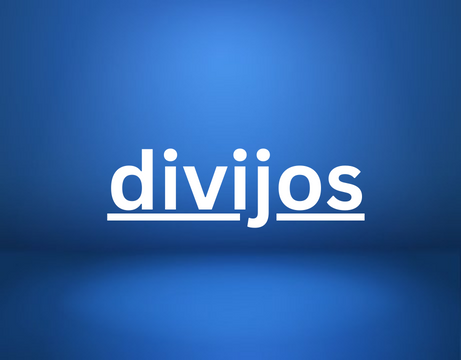Managing company projects is more crucial than ever in today’s fast-paced business world. That’s where enterprise project management steps in. It’s a game-changer for businesses seeking to streamline their project processes.
Imagine having a tool to organize, track, and manage all your company’s projects effortlessly. That’s what the right project management tool promises.
This guide is your roadmap to finding that perfect tool. It will ensure your projects succeed with the precision and efficiency of a well-oiled machine.
Understanding Enterprise Project Management
Enterprise project management oversees and manages a portfolio of projects to achieve strategic objectives while optimizing resources. It’s a step above regular project management because it focuses on the bigger picture, aligning project goals with the company’s strategic direction.
For a project manager, this means not just managing a single project but coordinating across multiple projects to ensure they all contribute to the overarching goals of the enterprise.
Selecting the Perfect Project Management Tool
Choosing the right enterprise software for project management is no small feat. It’s a decision that can impact your business projects’ efficiency, productivity, and success. But fear not!
With a clear understanding of your company’s needs and the features that can meet those needs, you can make an informed choice. Let’s examine the key features distinguishing a superior project management software.
Enhanced Project Planning and Scheduling
The ability to meticulously plan and schedule tasks is the backbone of effective project management. The best tools in the market transcend basic functionalities, such as offering dynamic Gantt charts, agile boards, and milestone tracking.
These features allow for task planning and adjusting schedules to accommodate the inevitable changes projects undergo.
Robust Resource Management
Resource management helps with understanding your current resource allocation and predicting future needs. Top-tier enterprise software provides detailed insights into each resource. It should enable you to do the following:
- Visualize workload balance across team members
- Track budget expenditures
- Predict future resource requirements with accuracy
Risk Management and Mitigation
A crucial feature is the ability of enterprise project management software to identify, assess, and mitigate risks. This functionality allows project managers to foresee potential problems and develop strategies to address them.
Effective risk management tools within the software can highlight risks based on probability and impact. This facilitates proactive decision-making and contingency planning.
Seamless Collaboration and Communication
Your chosen software should serve as a central hub for all project-related communication, breaking down silos between departments and stakeholders. Advanced features such as real-time chat, task comments, and integrated email notifications ensure everyone is on the same page.
Comprehensive Reporting and Analytics
A sophisticated project management tool will offer a suite of analytics and reporting capabilities that provide deep insights into project performance.
Customizable dashboards and detailed reports give project managers the tools to make decisions based on data. They track key performance indicators, time, budget, and resources.
Customization and Scalability
No two businesses are alike, and neither are their project management needs. The ability to customize the software-to modify workflows, create custom fields, and tailor dashboards-is paramount.
As your business grows, so too should your project management tool. Scalability ensures that the software can handle increasing projects and users without compromising performance.
Steps to Making the Right Choice
The right project management software brings many benefits to your business. It enhances team collaboration, improves resource management, and ensures projects are completed on time and within budget. It also provides valuable insights through data analytics.
However, there are specific steps to choosing a project management tool for your business. Let’s take a closer look.
Assess Your Needs
Start by understanding the specific challenges and requirements of your business. What problems do you need the software to solve? How complex are your projects?
Determine if your focus is improving team collaboration, enhancing task tracking, or optimizing resource allocation. Identify if your enterprise software needs to support large, complex projects with many stakeholders or if it should cater to more straightforward, shorter-term initiatives.
Research and Compare
Once you have a clear idea of your needs, research the available options. Compare features, pricing, and reviews to shortlist the best fits. This step is crucial in narrowing down the options to those that align with your company’s project management objectives.
Pay close attention to how each project management tool addresses your pain points. Consider the software’s ability to handle your project size and complexity. Look for feedback from similar businesses to gauge effectiveness.
Test Drive
Many providers offer free trials or demos. Use these to get a hands-on feel of how the software works and whether it meets your needs.
This practical experience can reveal insights about the software’s user interface and ease of use that you might not grasp from descriptions alone. It also allows your team to provide feedback on the tool’s effectiveness in addressing your project management challenges.
Check for Integration Capabilities
Ensure the software can integrate with other tools your business uses. This will help streamline workflows and improve efficiency.
Seamlessly connecting with your existing CRM, ERP, or communication platforms can reduce the learning curve and enhance user adoption rates. Look for project management tools that offer strong API support or pre-built integrations with the software your company already relies on.
Consider Support and Training
Good customer support and training resources can ease the software adoption process. Check what each vendor offers in this regard.
A responsive support team and comprehensive training materials can impact the successful implementation of your chosen project management software. Be sure to evaluate the availability of online tutorials, user forums, and in-person training sessions. Your team can become proficient in using the new tool by doing so.
Embrace the Future of Project Management
Choosing the right enterprise project management software is a strategic decision that can impact the success of your company’s projects. By considering your specific needs and carefully evaluating the available options, you can find a tool that fits your requirements and enhances your team’s productivity.
Thank you for reading our guide. If you found it helpful, we invite you to read more of our articles.










Leave a Reply